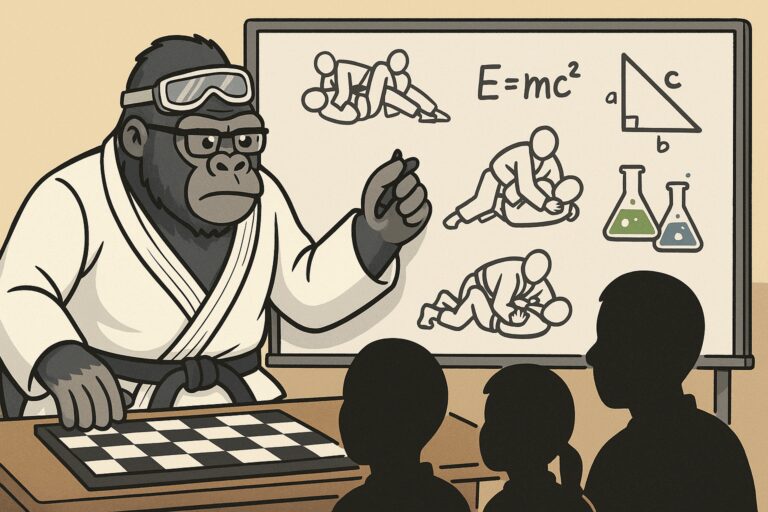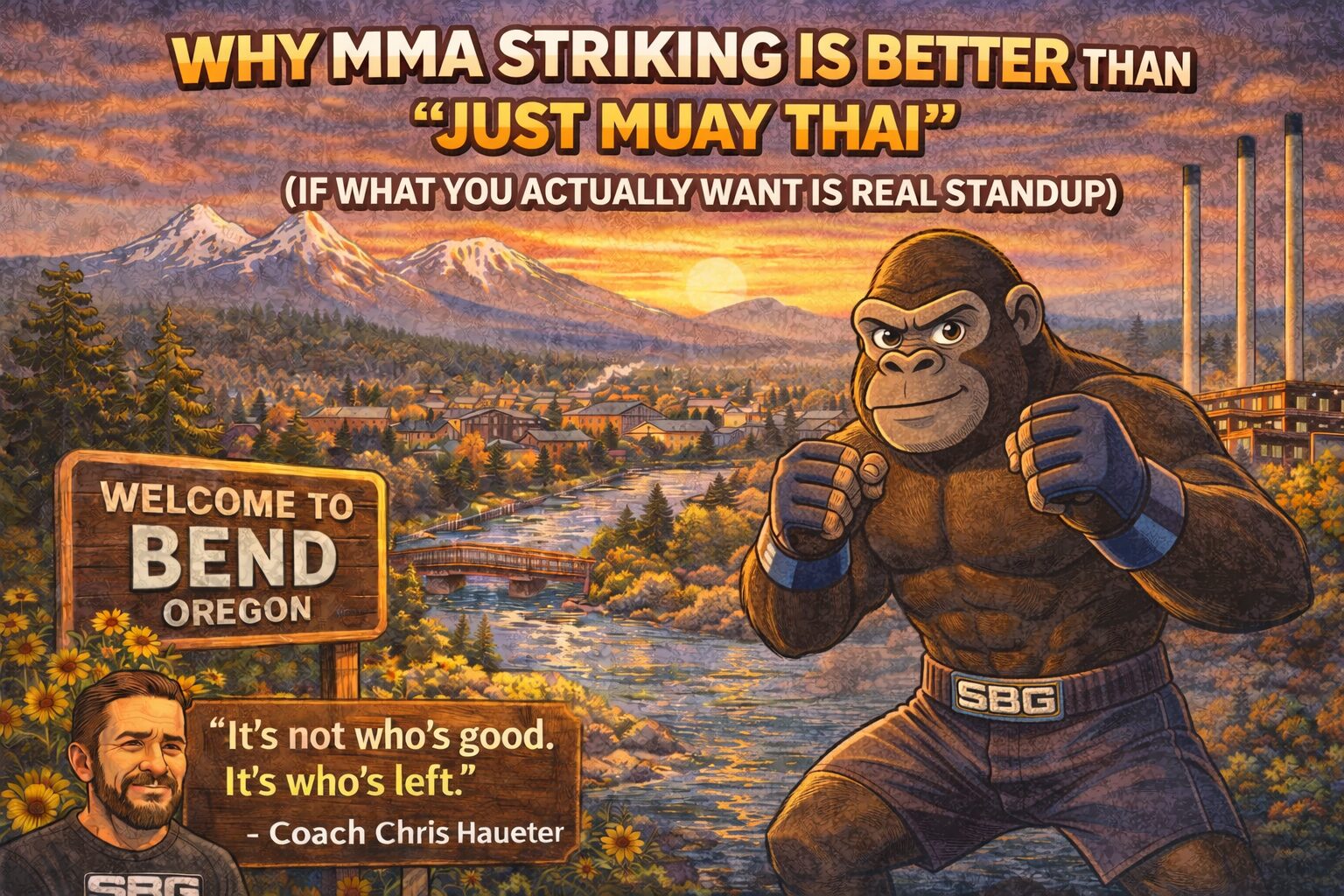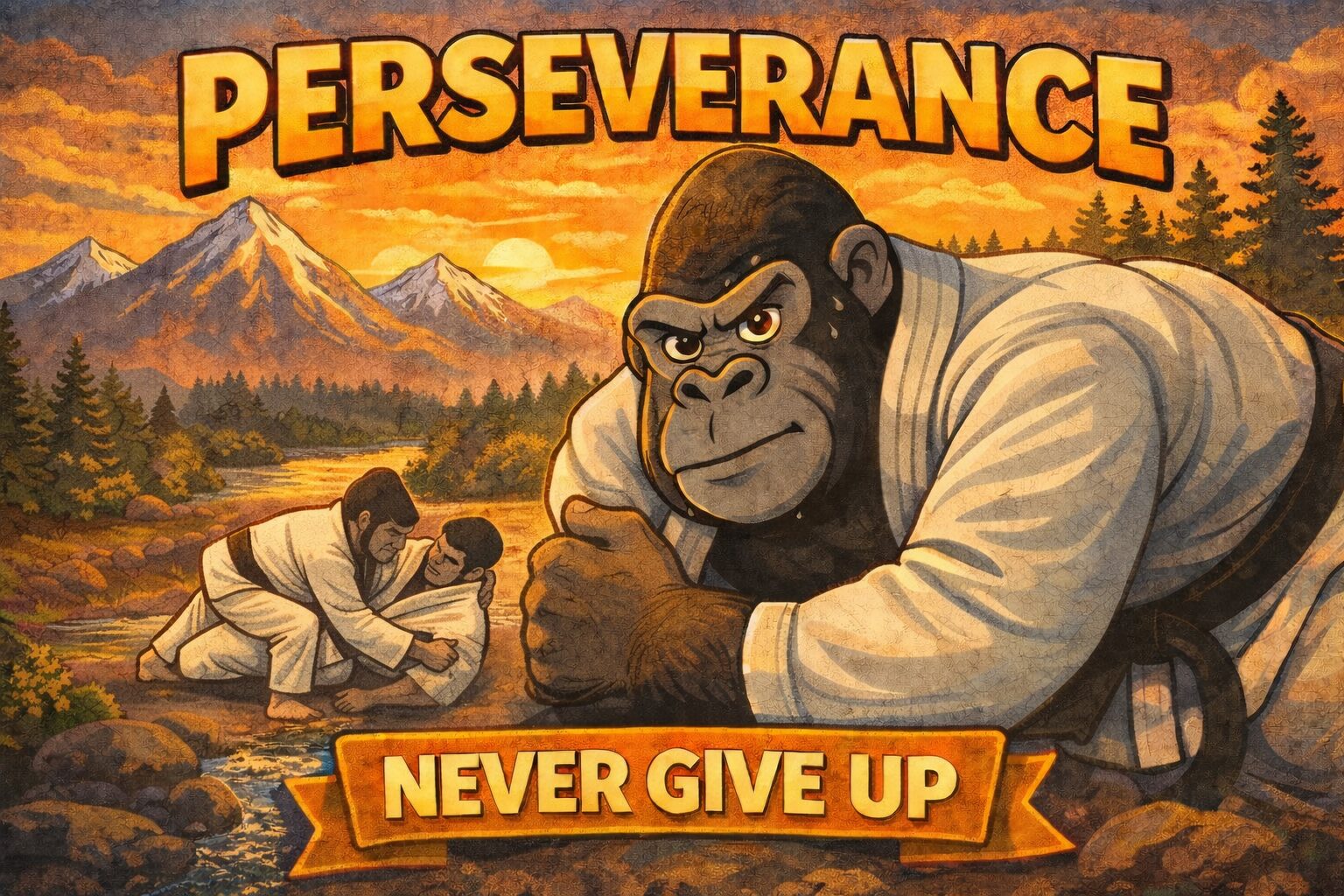Brazilian Jiu Jitsu isn’t just a physical endeavor – it’s often called “human chess” for a reason. At
SBG Bend, we embrace the intellectual side of martial arts as much as the physical. On our mats, you’ll find Jiu‑Jitsu scientists and philosophers at work, eager to dissect techniques and explore the “why” behind every move. This approach comes straight from SBG’s leadership.
Matt Thornton famously said he’s on a mission to create “scientists of fighting” who uncover universal principles that explain how and why techniques work. Instead of blindly copying what an instructor does, SBG encourages you to think critically, ask questions, and internalize concepts. It’s martial arts training for the curious mind.
Training with a Lab‑Coat Mindset
One of SBG’s pioneering black belts,
Chris Haueter, embodies this scientific mindset. Haueter – a Marine Corps veteran turned BJJ pioneer – is part of SBG Bend’s lineage and influence. Known as “The Scientist in a Gi,” he coined the term “combat base” and was the first American to submit a Brazilian in competition, as well as one of the first dozen Americans to earn a BJJ black belt. His teaching style? A dry humor paired with a laboratory approach to problem‑solving on the mat. He likes to isolate variables, add resistance, observe results, and iterate – just like a science experiment. This perfectly dovetails with SBG’s ethos. In our classes, you might feel like a martial arts researcher: testing a guard pass, getting feedback when a partner resists, and refining the technique until it’s reliable. It’s a fun, engaging process that treats every roll as a learning opportunity, not just a contest. You’ll hear coaches prompting students with questions like “Why did that sweep work?” or “What’s the underlying principle here?” By thinking in terms of base, posture, and structure (key concepts we drill into our students), you begin to understand the physics and leverage that make BJJ techniques effective. Every class becomes an exploration – you’re not just accumulating moves, you’re learning how to learn.
Philosophy on the Mats
The intellectual vibe at SBG Bend also means we appreciate the deeper lessons of martial arts. Many of our coaches and mentors are well‑read and even bring philosophical influences into training.
Matt Thornton himself has engaged in public discussions on skepticism and the scientific method, applying those ideas to martial arts and life. He’s guest‑lectured in university philosophy classes about rationality and routinely challenges us to question martial arts dogma. This thinking has trickled down to all SBG locations. It’s common to hear references to books, history, or philosophy during our gym conversations. Don’t be surprised if an open mat at SBG Bend involves both rolling and a friendly debate about, say,
Bruce Lee’s fighting philosophy or the latest BJJ theory video on YouTube. We believe that an informed fighter is a better fighter. Even kids in our program learn not just what to do, but get simple explanations of why (“use leverage here because it’s science, not magic!”).
SBG’s Philosophy: Truth, Aliveness, Adaptability
One core philosophy we stand by is SBG’s triad of Truth, Aliveness, Adaptability. These principles guide our learning process. “Truth” means we seek what’s real and proven (back to that practical effectiveness). “Aliveness” we’ve covered – it’s the method. “Adaptability” is the outcome: by sparring and drilling realistically, you become adaptable to any situation. This is essentially an epistemology – a way of gaining knowledge – applied to martial arts. It’s why SBG is often described as having an “academically sharp” vibe. Many of us are professionals, students, or lifelong learners outside the gym, and we find SBG’s approach deeply satisfying because it engages the mind. At SBG Bend, classes are upbeat and often filled with light humor, but they’re also intellectually stimulating. You’ll leave not just sweat‑drenched, but thinking “aha, I learned something fundamental today.”
Ultimately, SBG Bend’s goal is to produce martial artists who are thinking fighters. We want you to be able to coach yourself, to analyze what’s happening in a roll or even in a real confrontation, and adapt intelligently. This mindset transcends the mat: the problem‑solving, patience, and humility you develop through BJJ can apply to your work, studies, or any challenge in life. It’s martial arts training at its most enriching. So if you’re a knowledge‑seeker who loves to learn, you’ll fit right in. Together, we’ll continue to ask questions, experiment, and grow – as true “jiu‑jitsu scientists” carrying on SBG’s tradition of curiosity and excellence.






